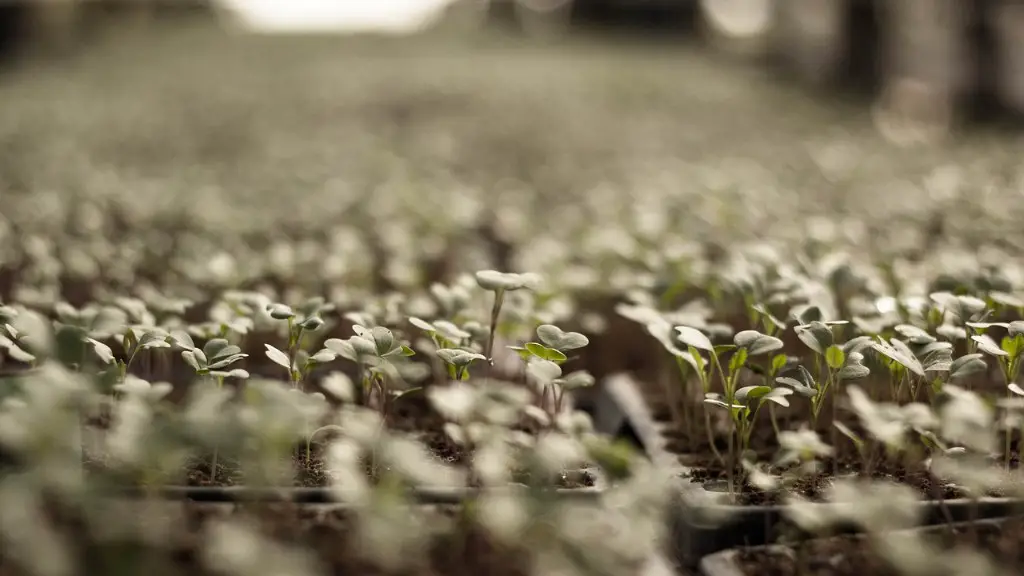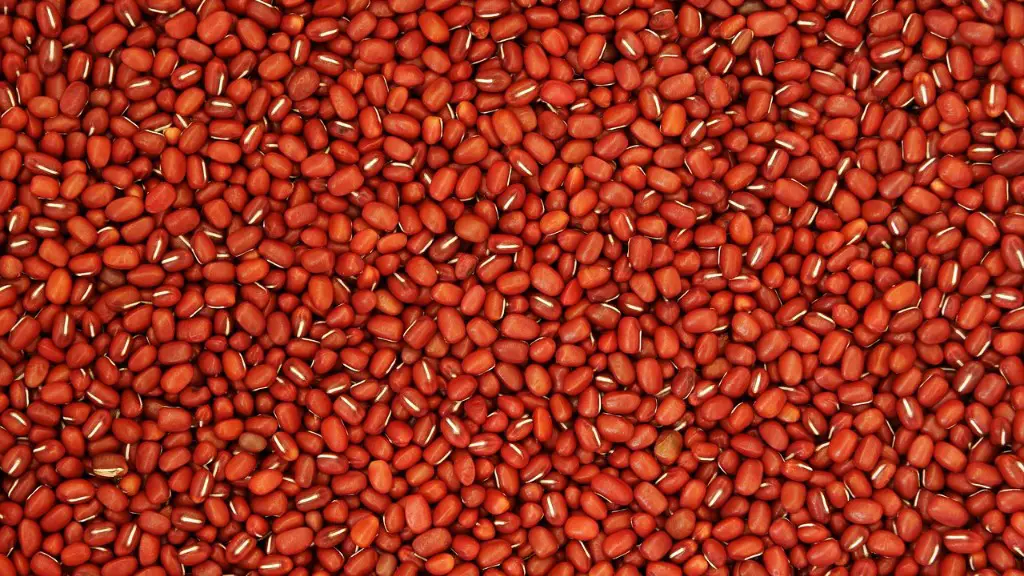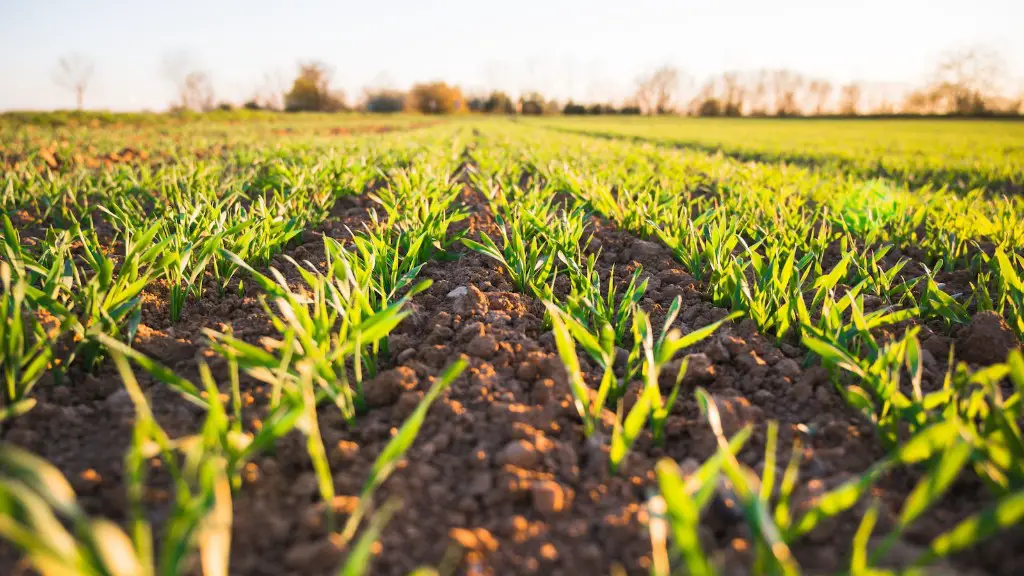The benefits of sustainable agriculture are far-reaching and impactful. Sustainable agriculture helps to regenerate soil health, improve water quality, and reduce the use of harmful chemicals. Additionally, sustainable agriculture can help to mitigate climate change, supportlocal economies, and create jobs.
It is estimated that sustainable agriculture has the potential to contribute an additional $80 billion dollars annually to the United States economy. This increase is attributed to the diverse array of products and services that sustainable agriculture provides, including food, fiber, energy, and environmental services. Moreover, sustainable agriculture has been shown to create jobs and spur economic development in rural communities.
How does agriculture affect the economy?
Agriculture is a vital part of the US economy, contributing over $1264 trillion in 2021. This sector accounts for 54% of the country’s gross domestic product (GDP). Agriculture, food, and related industries are responsible for around 07% of US GDP.
When agricultural operations are sustainably managed, they can preserve and restore critical habitats, help protect watersheds, and improve soil health and water quality. WWF identifies and implements better management practices for agriculture that promote the conservation of natural resources.
What are 3 benefits of sustainable agriculture
There are a few key ways to increase profitable farm income while promoting environmental stewardship and enhancing quality of life for farm families and communities. One is to increase production for human food and fiber needs. This can be done by implementing more efficient practices, using new technology, and/or expanding markets. Another way to increase income is to diversify farm operations to include value-added products or services. This could involve direct marketing to consumers, agritourism, or on-farm processing. Finally, improving natural resource management on the farm can help reduce costs and increase profitability. This could include conservation tillage, cover crops, and integrated pest management.
Sustainability is not only about saving money, it is also about building relationships with consumers to ensure profitability in the future. Consumers are increasingly interested in products that are environmentally friendly and sustainable, and companies that can provide these products will be in a strong position to succeed.
How agriculture plays an important role in our economic growth?
Agriculture is a vital sector of the Indian economy and it plays a very important role in the overall development of the country. Agriculture contributes around 17% to the GDP and provides employment to more than 60% of the population. Over 70% of the rural households depend on agriculture for their livelihood.
The sector is however, facing many challenges such as declining productivity, declining water resources, soil degradation, etc. There is a need to adopt modern technologies and practices to improve the productivity and sustainability of agriculture in India.
A strong agricultural economy is vital for social progress as it increases productivity, employment and income. Agriculture is the main driver of development in most rural areas and so a strong agricultural economy is essential for the development of rural areas.
What are the positive effects of sustainable agriculture?
Sustainable agriculture is a type of farming that aims toMeeting the needs of the present generation without compromising the ability of future generations to meet their needs.
There are many benefits of sustainable agriculture, including that it:
-Prevents farm pollution by avoiding the use of pesticides and fertilizers
-Improves soil health and promotes biodiveristy through crop and livestock rotation
-Conserves water and ensures the environment is not depleted for future generations
Sustainable agriculture is a type of agriculture that focuses on producing long-term crops and livestock while protecting the environment. There are many benefits to sustainable agriculture, including preserving the earth’s natural resources, maintaining soil quality, reducing erosion, and preserving water.
Who benefits from sustainable agriculture
Sustainable agriculture is not only important for the environment, but also for the economy and the quality of life of farmers. Agriculture is the biggest employer in the world, and sustainable agriculture practices can help to improve the lives of those who work in it.
Sustainable agriculture is an approach to food production that is based on three core principles: environmental health, economic profitability, and social and economic equity. These three principles are often referred to as the “three legs of the sustainability stool.”
Sustainable agriculture is an approach to food production that seeks to balance the three core principles of sustainability: environmental health, economic profitability, and social and economic equity. Sustainable agriculture is sometimes referred to as the “three-legged stool” of sustainability.
How important is sustainability in agriculture?
Sustainable farming is a type of agriculture that focuses on producing long-term crops and livestock while maintaining the health of the environment. Sustainable farming integrates whole systems and landscapes as part of the farm, which supports biodiversity. This type of farming also protects the environment and fosters growth and maintenance of healthy ecosystems.
Sustainable agriculture is a type of farming that has been created to address the environmental and economic problems that are often associated with traditional farming practices. Sustainable agriculture must meet three basic needs: it must be able to produce the food that we need without damaging the environment, it must be economically viable so that farmers can make a living, and it must be socially just so that everyone has access to healthy food.
Why is sustainable agriculture more profitable
Some research suggests that sustainable agriculture has higher profit margins than conventional agriculture. This is believed to be due to the higher premiums that farmers can charge for organic and sustainably-grown produce, as well as the higher yield potential with practices like regenerative and/or no-till agriculture.
Small-scale farmers have a hard time competing with large-scale commercial farms when it comes to production costs. They often have to pass these costs along to the consumer, but there is a limit to what consumers will pay. This can make it difficult for small-scale farmers to stay in business.
What are two 2 disadvantages of sustainable farming?
There are several disadvantages to sustainable farming, limited land use being one of the most significant. Since sustainable agriculture is not based on mass production, the amount of land required is much greater, making it less suitable for large-scale farming. Another disadvantage is that sustainable agriculture is much more labor intensive, as reversing soil degradation and restoring fertility takes a great deal of time and effort. finally, sustainable crops often have shorter shelf lives than conventionally produced crops, as they are not treated with harsh chemicals to extend their shelf life.
The loss of natural ecosystems, declining diversity and increasing net GHG emissions are some of the problems caused by these practices. Soil formation and erosion also limits the ability of soil to hold moisture and provide nutrients.
Final Words
There is no definitive answer to this question as the economic effects of sustainable agriculture can vary greatly depending on the specific practices used, the geographical location, and the overall economic conditions of the region. However, some people believe that sustainable agriculture can have positive economic effects by creating jobs, reducing dependence on fossil fuels, and increasing food security. Additionally, sustainable agriculture can help to preserve natural resources and reduce environmental pollution.
Overall, sustainable agriculture affects the economy in a positive way. By definition, sustainable agriculture is the production of food, fiber, or other plant or animal products using farming techniques that protect the environment, public health, human communities, and animal welfare. This means that sustainable agriculture practices help to conserve natural resources, reduce pollution, and promote social and economic stability. Furthermore, sustainable agriculture often makes use of innovative technology and production practices that can result in increased efficiency and higher yields. In the long run, sustainable agriculture practices can help to create a more sustainable, resilient, and prosperous world.




